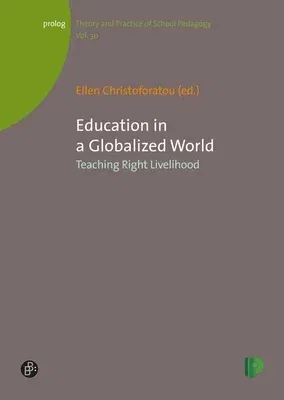Education in a Globalized World: Teaching Right LivelihoodPaperback, 5 January 2016

Qty
1
Turbo
Ships in 2 - 3 days
In Stock
Free Delivery
Cash on Delivery
15 Days
Free Returns
Secure Checkout

Part of Series
PROLOG - Theorie Und Praxis Der Schulpädagogik
Print Length
154 pages
Language
English
Publisher
Verlag Barbara Budrich
Date Published
5 Jan 2016
ISBN-10
3934575838
ISBN-13
9783934575837
Description
Product Details
Book Format:
Paperback
Country of Origin:
US
Date Published:
5 January 2016
Dimensions:
24.13 x
16.76 x
1.52 cm
ISBN-10:
3934575838
ISBN-13:
9783934575837
Language:
English
Pages:
154
Publisher:
Weight:
272.16 gm